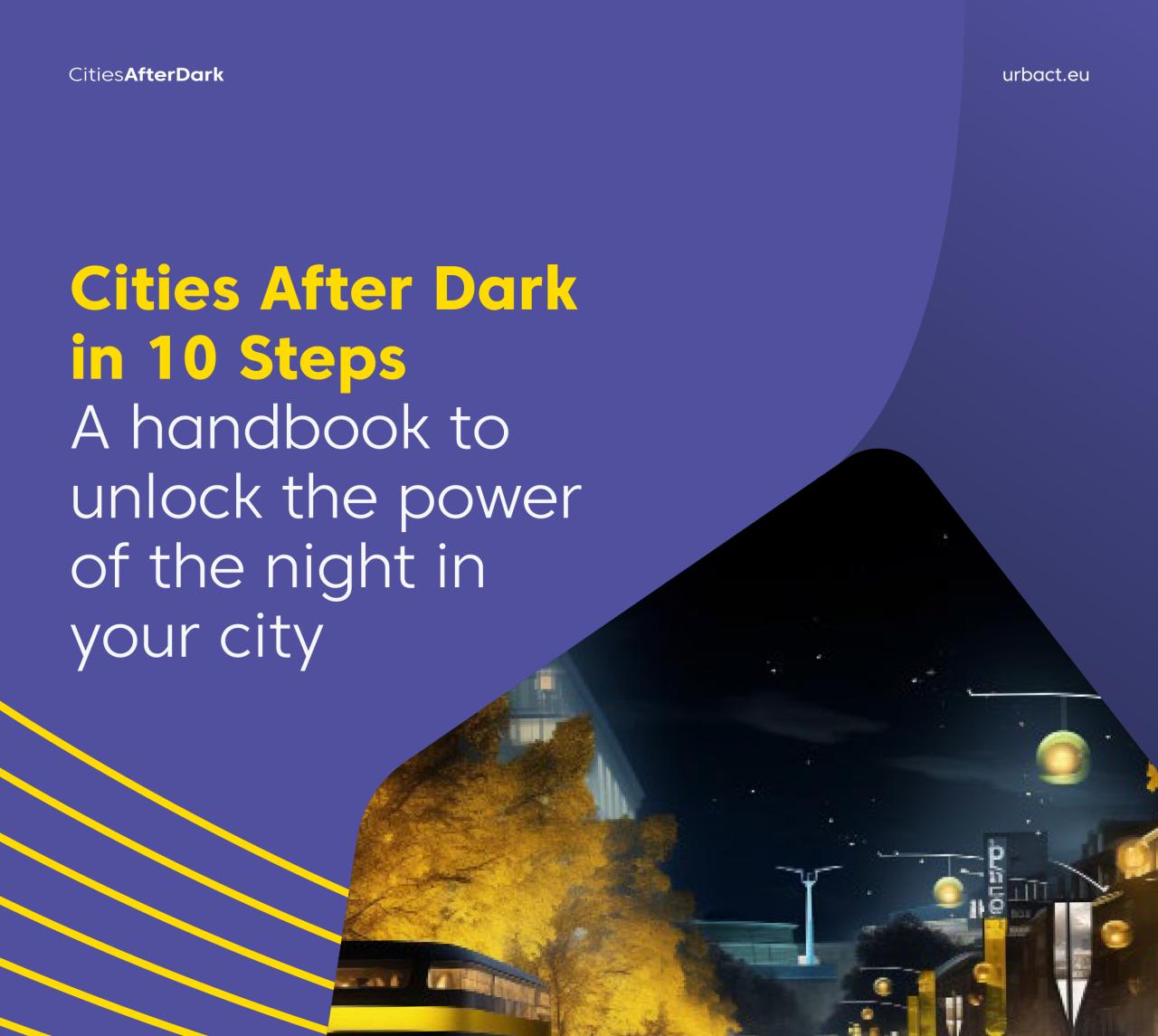The URBACT IV Action Planning Network Cities After Dark, led by the City of Braga and involving nine additional European cities, has released the Cities After Dark in 10 Steps - A Handbook to Unlock the Power of the Night in Your City. This landmark publication is the first Europe-wide guide dedicated to helping local authorities design integrated, sustainable and inclusive night-time economy strategies.
The Handbook concludes 31 months of transnational cooperation between Braga, Budva, Genoa, Málaga, Nicosia, Paris, Piraeus, Tallinn, Varna and Zadar, which from 2023 to 2025 explored new ways of governing, experiencing and imagining cities between 6 PM and 6 AM - a time window often overlooked in urban planning but increasingly recognised as a crucial arena for creativity, innovation, inclusion and sustainable growth.
Why the night matters
Developed in the wake of the COVID-19 pandemic, when the night-time economy was among the most affected sectors, Cities After Dark supported the revival of nocturnal life and encouraged a shared reflection on how the night can act as a driver of urban innovation.
Through transnational meetings, thematic seminars, study visits, articles, studies and the network’s Quarterly Journals, partners explored key challenges and opportunities linked to life after dark, including:
- sustainable mobility;
- safety and inclusion;
- culture and creativity;
- public space use;
- 24-hour essential services;
- governance and participation;
- environmental impact.
All activities were anchored in URBACT’s cross-cutting priorities of gender equality, green transition and digital transformation.
A practical guide in 10 steps
The newly published Handbook distils the network’s collective learning into 10 actionable steps that any city can follow when developing a night-time strategy:
- Get to know your night-time economy
- Bring everyone to the table
- Rethink public spaces after dark
- Keep services running after 6 PM
- Move sustainably at night
- Support culture and creativity
- Make nights safer and fairer
- Use smart tech to improve the night
- Share the night across the city
- Govern the night in the long term
Each chapter includes inspiring examples from partner cities - from Tallinn’s night-time bus services turned into cultural stages, to Varna’s late-night cultural programming, or Nicosia’s activation of public spaces through open-air dancefloors and creative workshops.
A legacy beyond the network
One of the network’s most significant achievements has been the creation of Integrated Action Plans (IAPs) for each partner city. For many, these represent their first collaborative night-time strategies, built through the URBACT Local Groups and supported by targeted Testing Actions.
These pilot activities not only validated new approaches but also strengthened local governance models, laying the groundwork for future Night Councils, advisory bodies and cross-departmental night governance structures.
The legacy of Cities After Dark extends further, shaping the European debate on night-time policies and inspiring new initiatives at local, national and EU levels.
Looking ahead, the network’s experience will continue to grow internationally through Global Cities After Dark, a new voluntary global initiative co-founded by the City of Braga and the Nightlife Foundation. This new platform will unite cities around the world with partners such as UN-Habitat, OECD and others to advance night-time economy policies as a driver for sustainable urban development.


